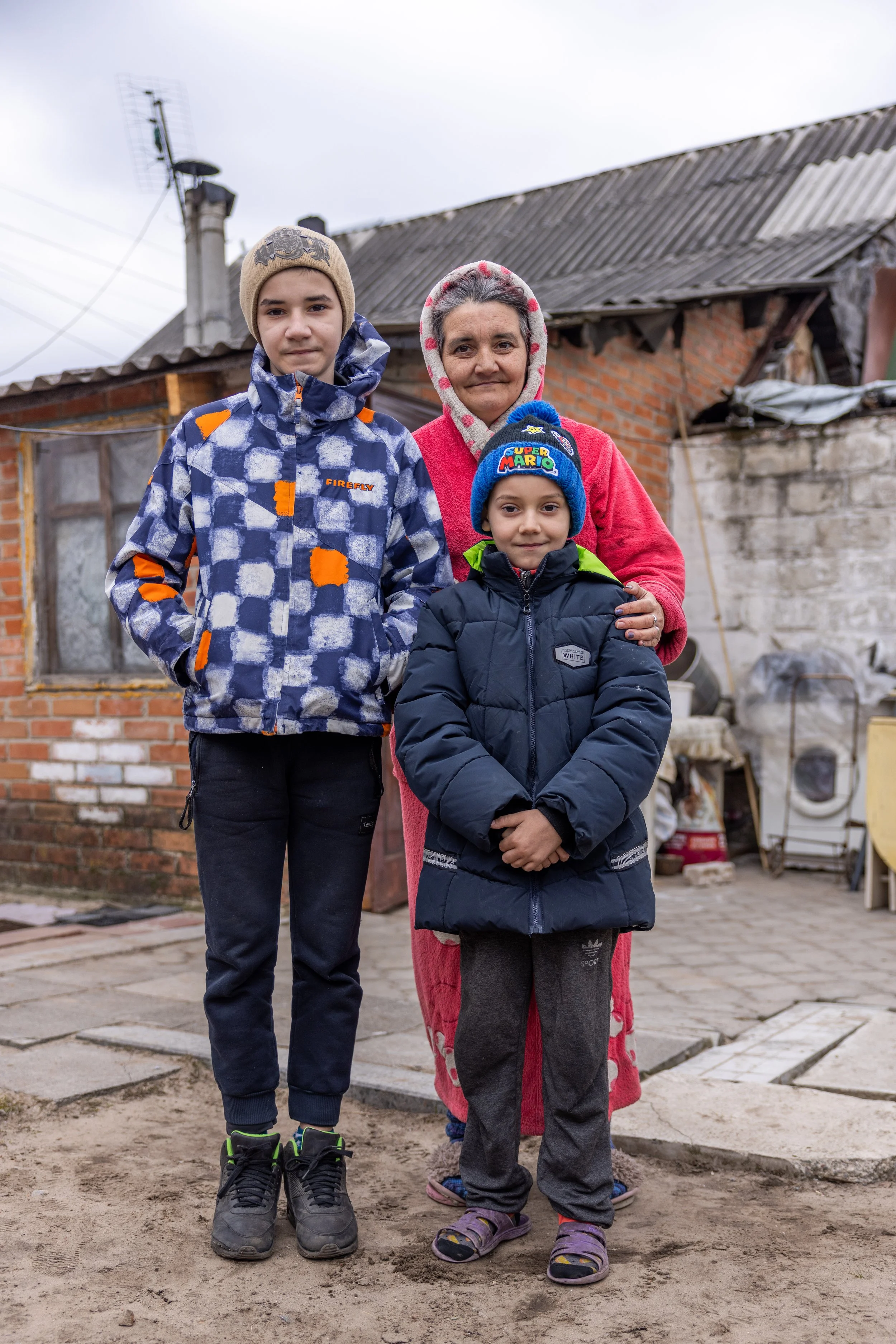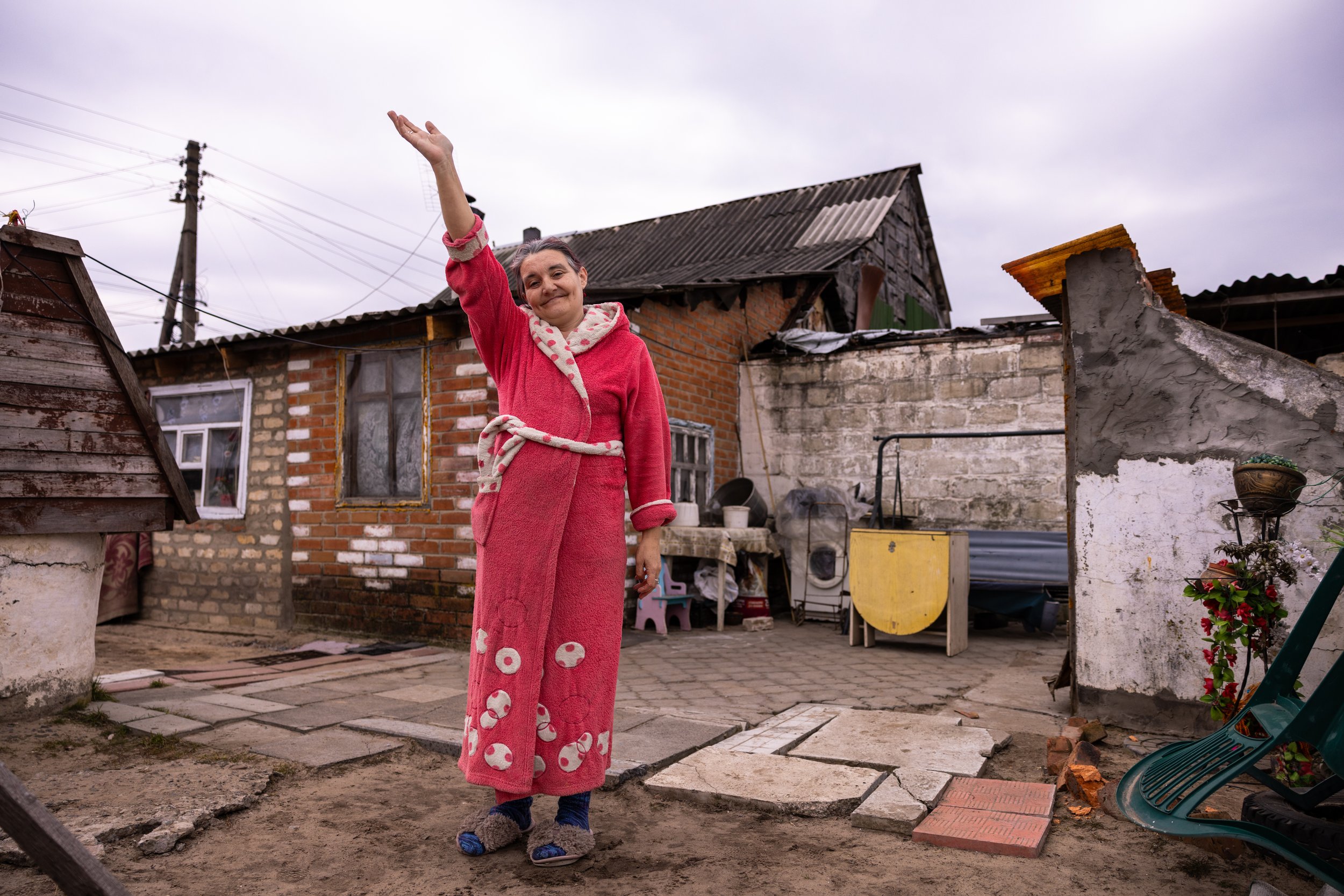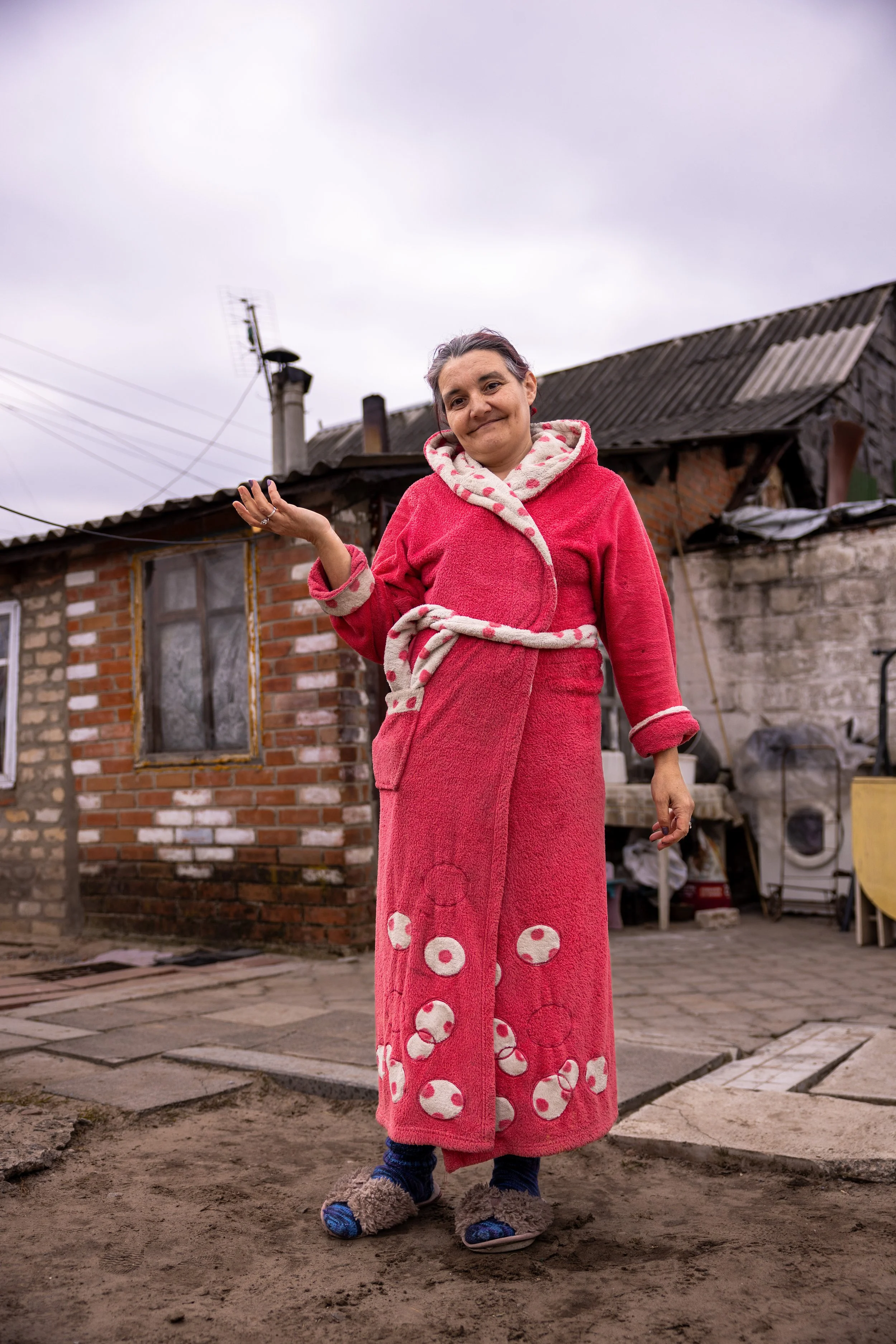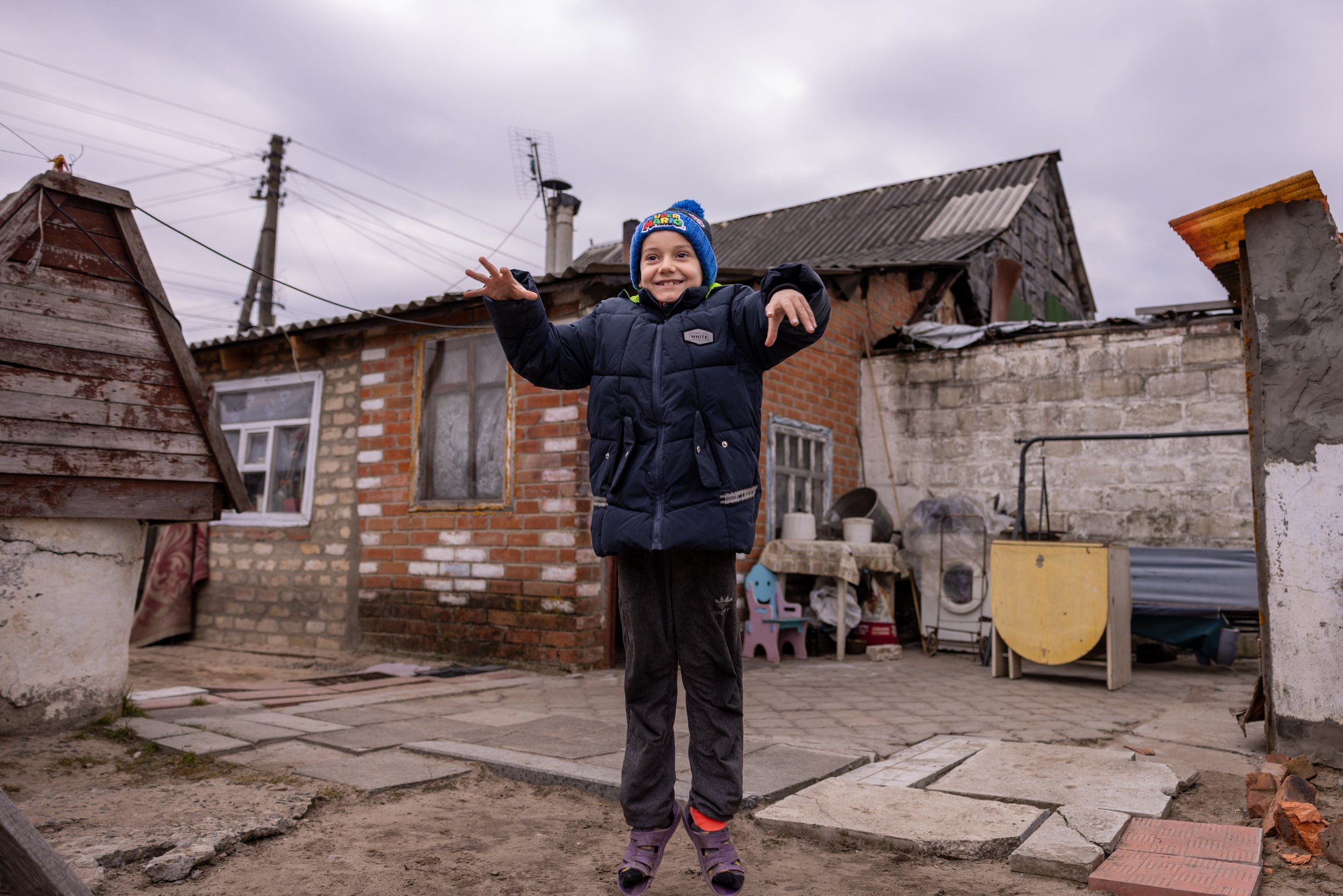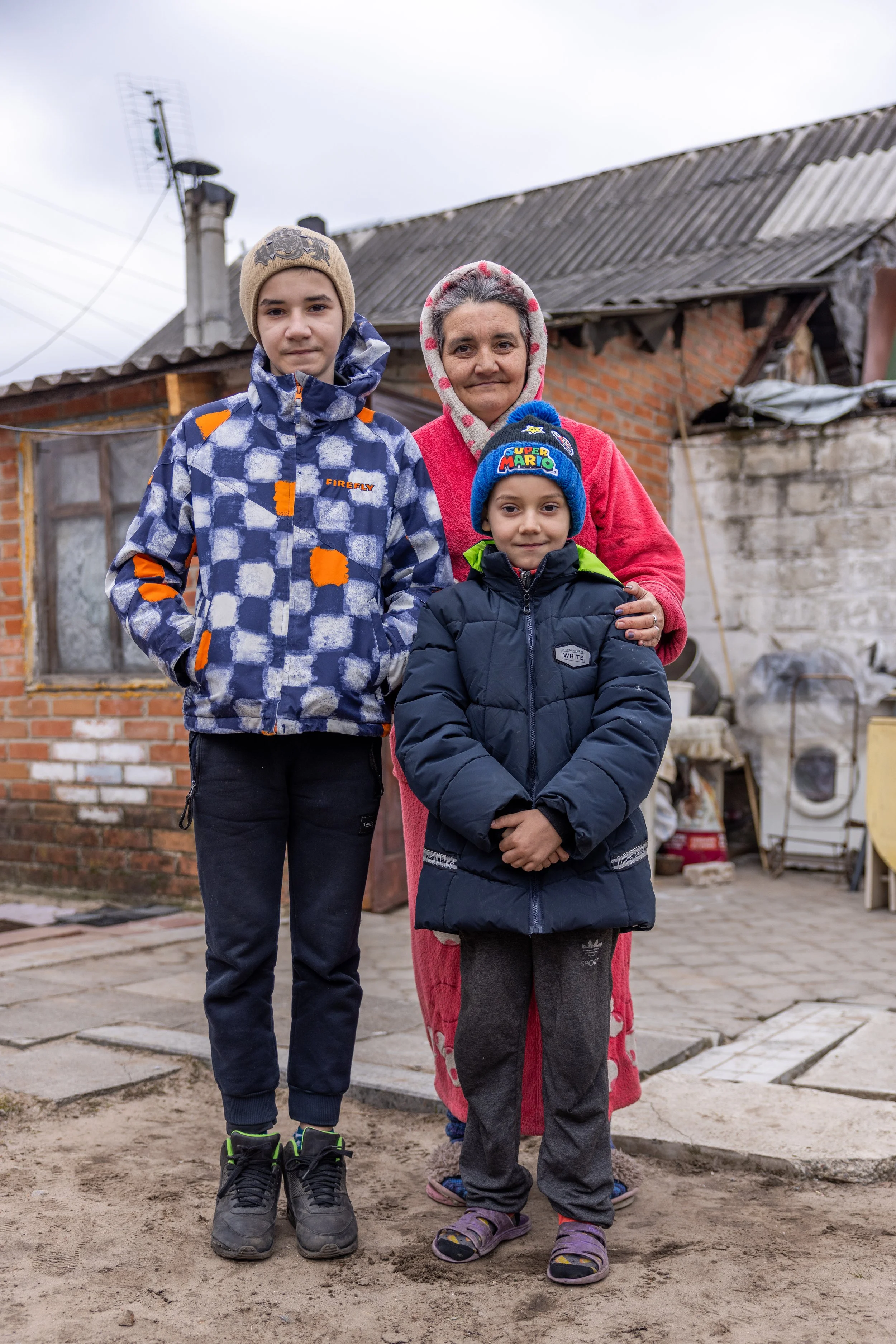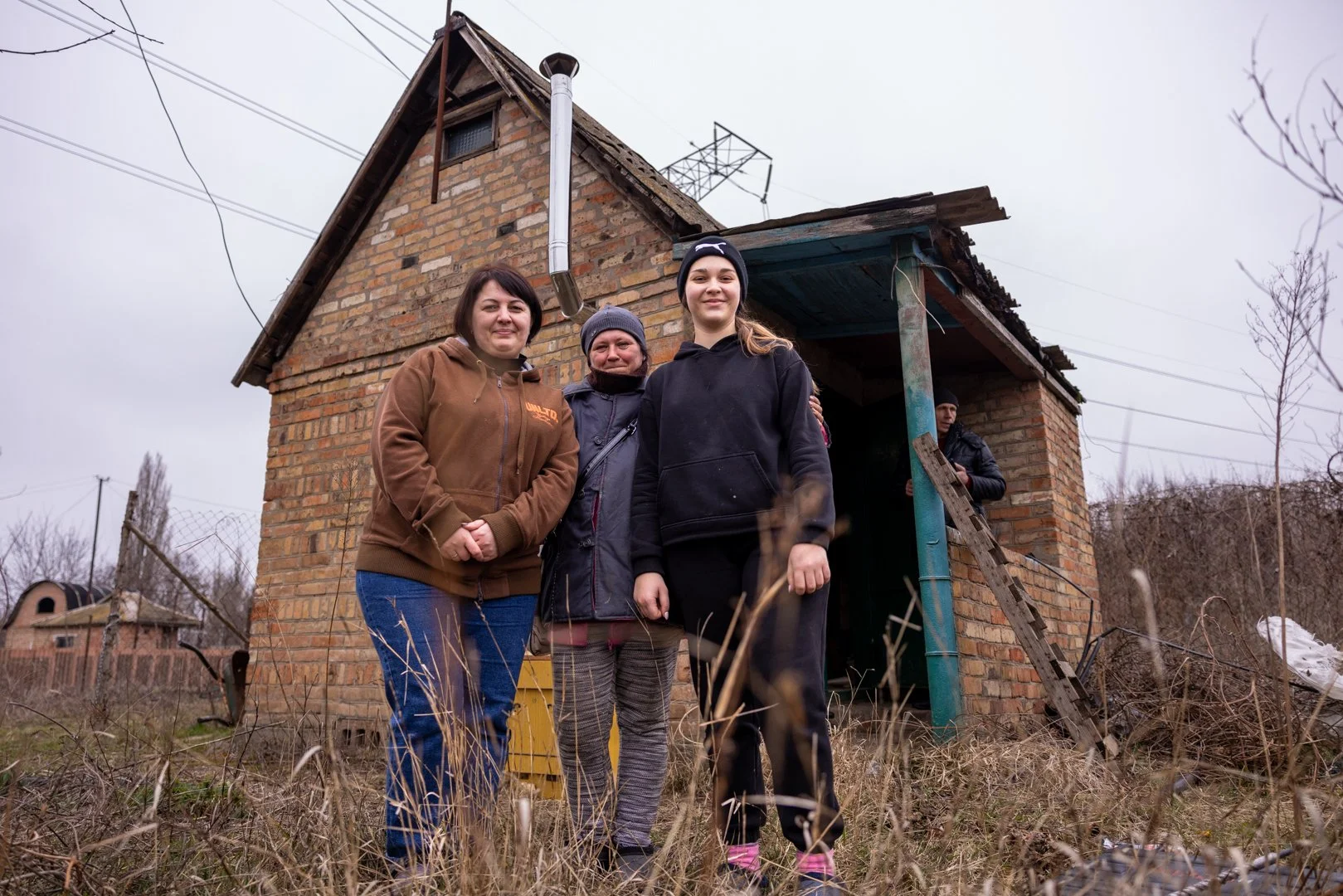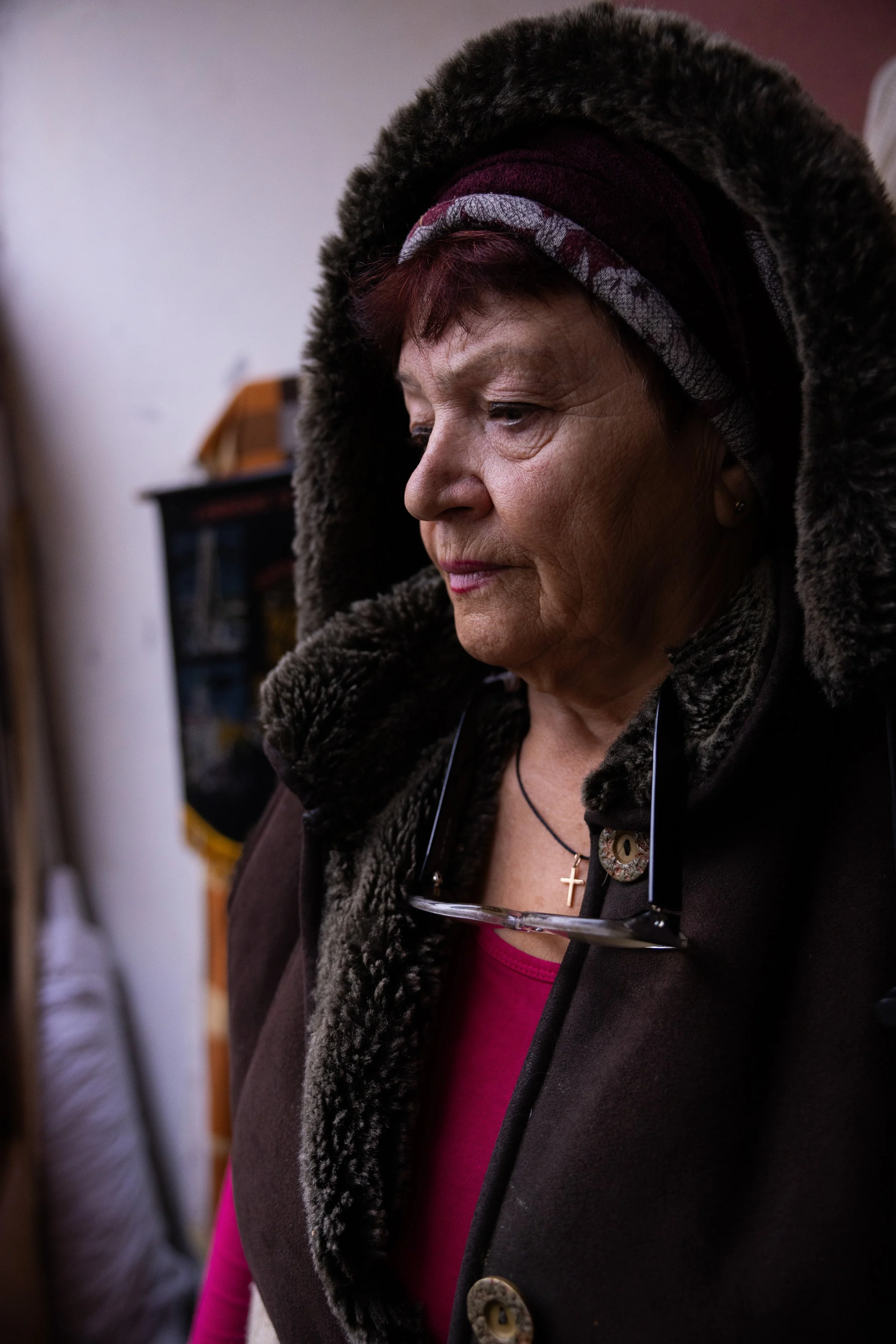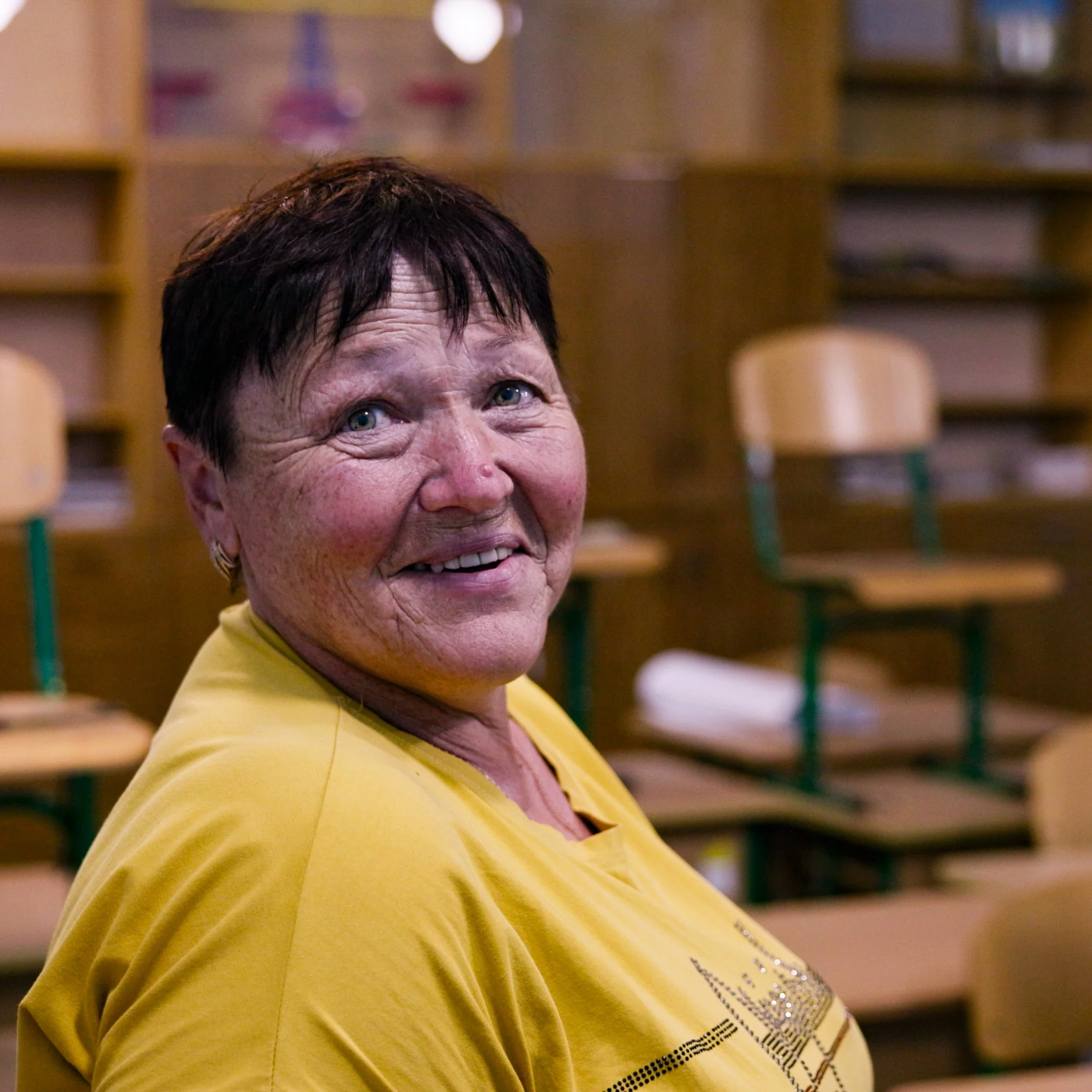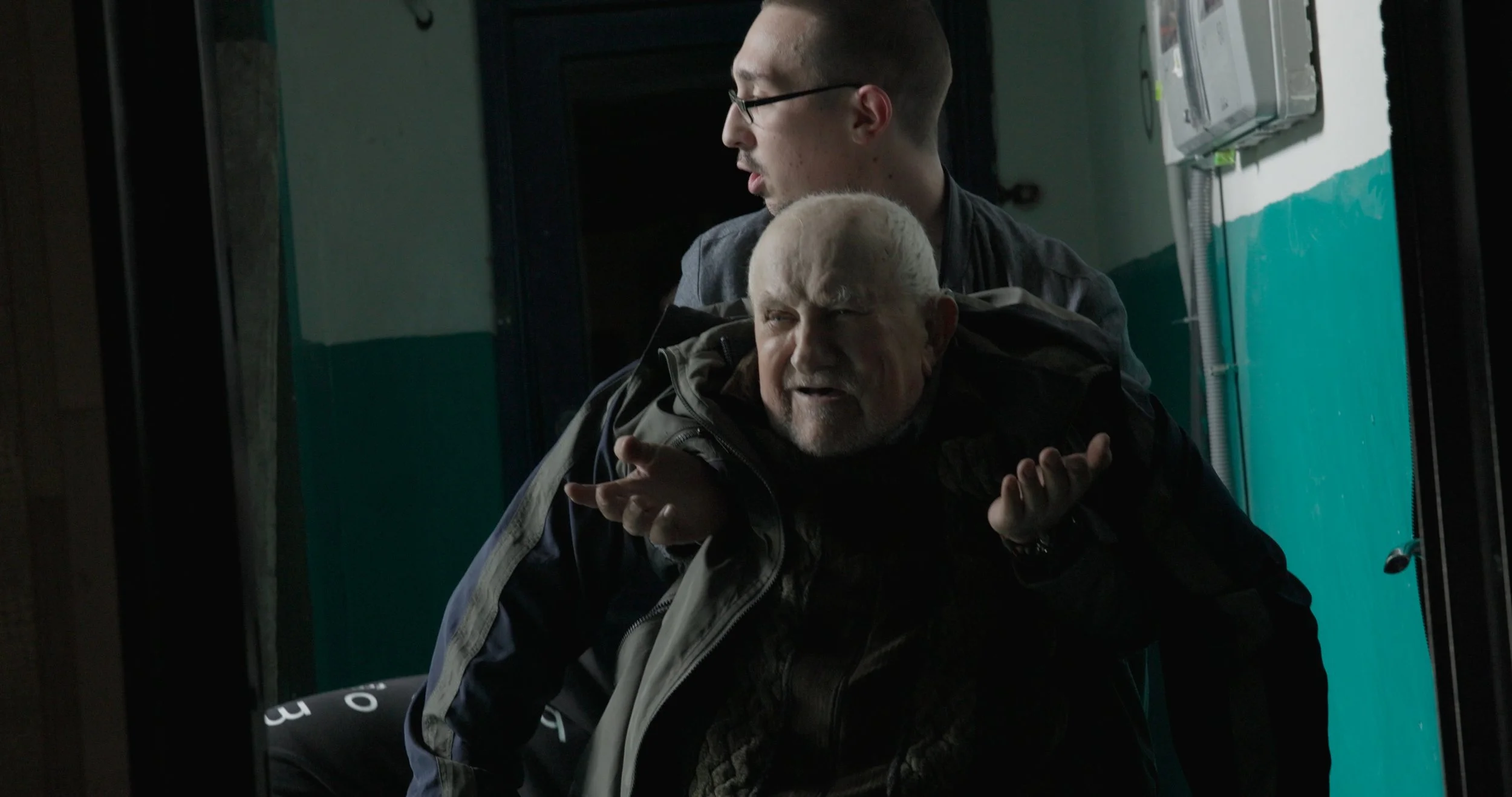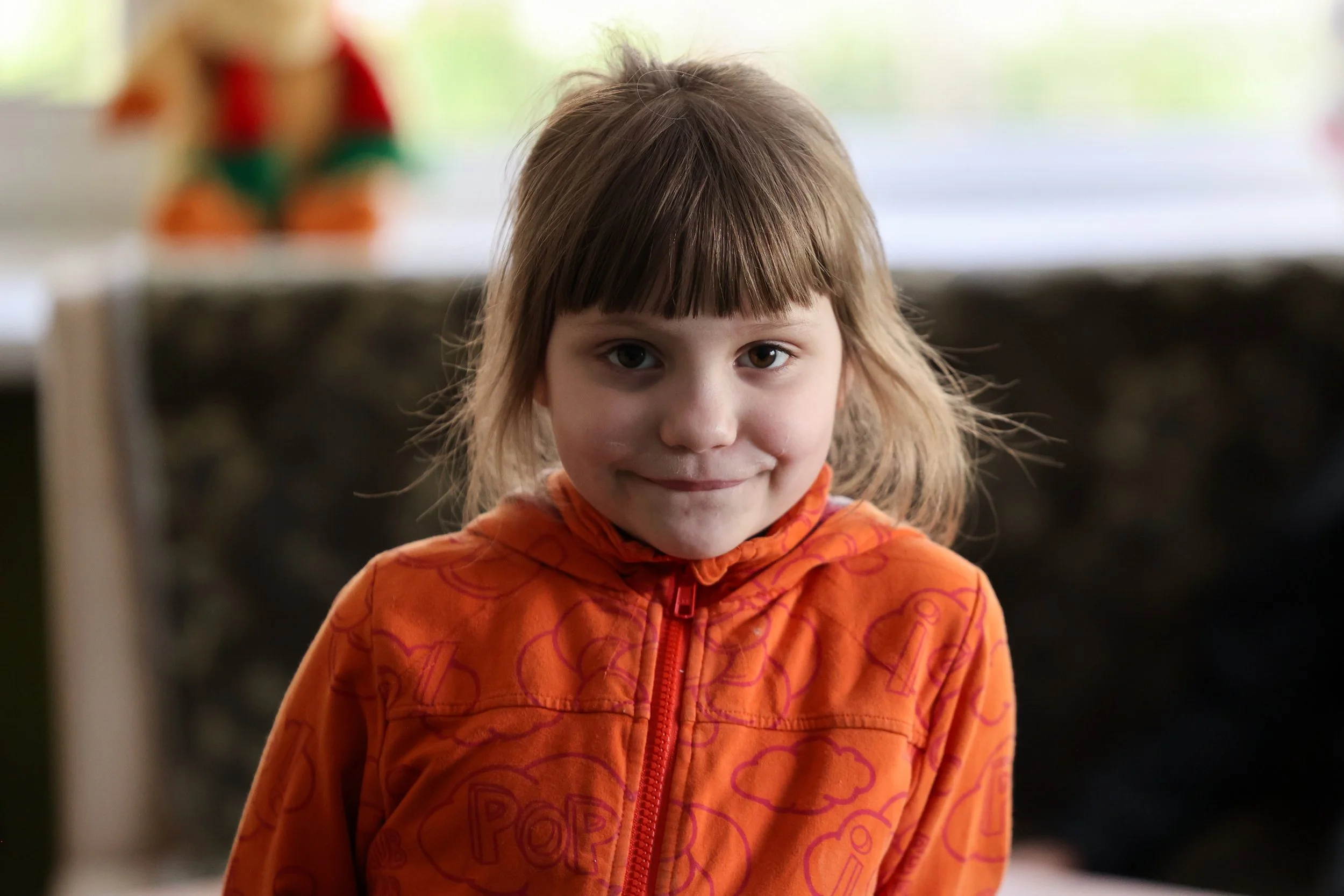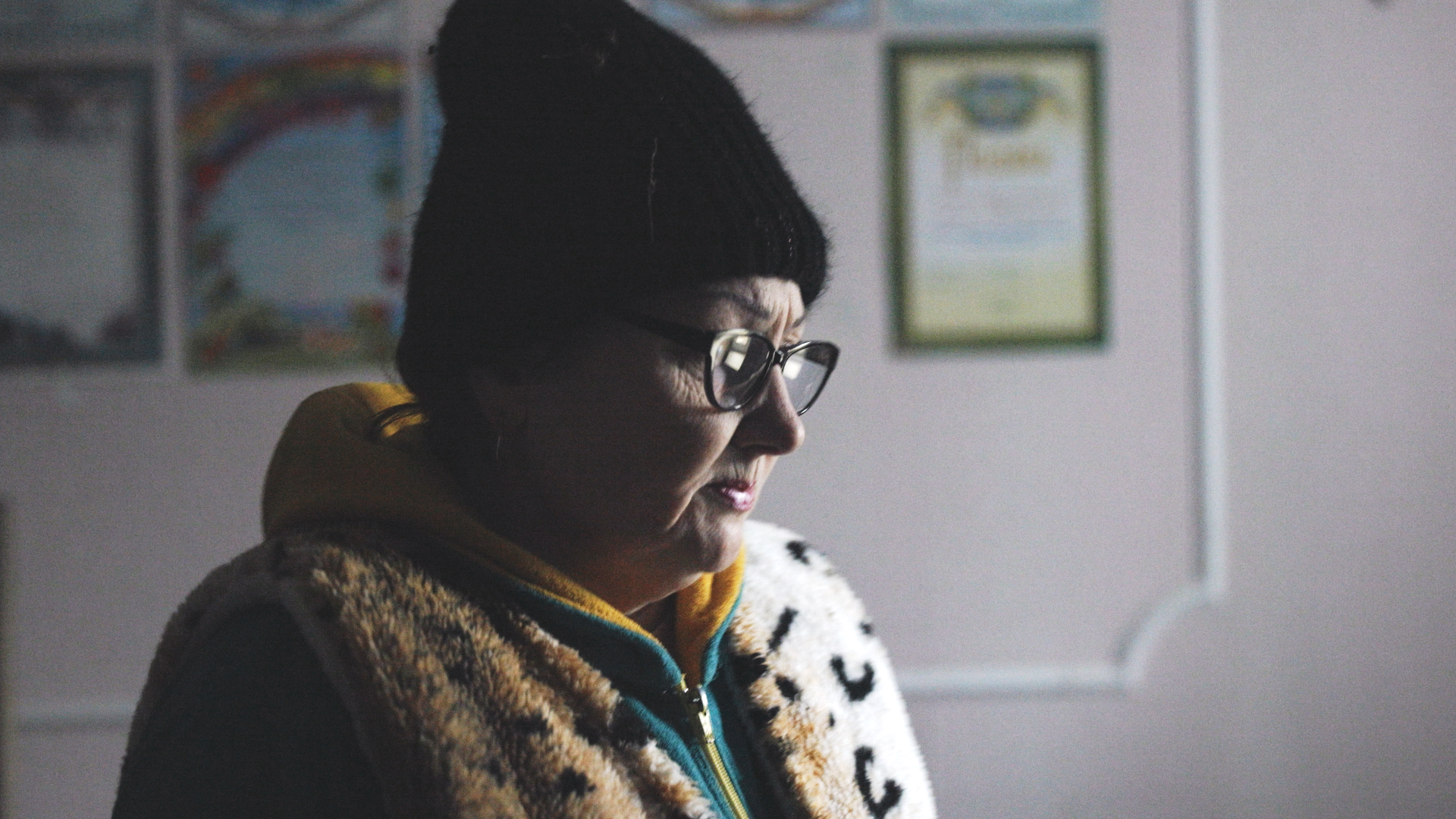
Social class in war
‘Kola is seventeen, Andreya sixteen, Bhodan thirteen, Mihkail born in 2009 and Vasha is nine.’
‘That is a lot of mouths to feed.’
‘The other five are all girls. They do not live here anymore. I have ten in total.’
Taia’s husband, Yuri, walks in from outside. He is short, strong and has dark eyebrows. His hands and jeans are dirty. He surveys the room, nods and then walks out.
‘Since the beginning of the winter we have been chopping wood for a disabled man nearby,’ says Taia, inspecting Yuri’s dirty boot prints on the floor as he leaves, ‘it has been difficult to get money.’
In war, social class still has a place, apparently. Taia and Yuri’s family live on the peripheries. Originally, we were told by some not to bother helping this family, ‘they are gypsies.’ Others said that these were the ones that needed our help the most. The last time we were here was on 7th January 2023, Christmas Day in the Eastern Orthodox church. There was ice on the insides of the makeshift windows.
Like many others this family are trying to rebuild their lives in the shadows of destruction. Since my last visit, the tolling droll of exploding mines has lessened, but now the shelling is getting closer. Before the Battle of Izyum (March – April 2022), the family lived further in town. Today there is nothing left of their home – the place they live now is a one-storey building belonging to Taia’s friend who has long since evacuated. There are three rooms, a garden, and a wood-burning stove.
Taia pours us coffee and we give her four large bags of food. Helen, our translator, tells us that due to the obscurity of where they now live, the family are not within the catchment area for humanitarian aid. I get the sense that they have been deliberately forgotten by the municipality, put to the back of the pile. It is hard enough to start to shape a home out of broken pieces, even harder when your very existence is being ignored by your own people. There is a laboured weariness and a darkly lit defiance on the faces of Taia and Yuri that makes them stand out from others that we have met. Community spirit in the war-torn areas of Ukraine is, by now, internationally renowned. Dig a little closer to the bone and, like all countries, attitudes of inequality remain a constant fracture to community.
Vasha, Bhodan and Mihkail join us at the table. A small cat appears too. ‘This is Pushina,’ says Taia. The little cat is grey, spotless, blue-eyed and utterly carefree being rolled around like silk in the hands of Vasha, the youngest.
‘Does he belong to you?’
Vasha’s eyes light up. He nods.
‘We had him before the invasion – in the old house - ’
‘And I fed him in the shelter,’ interrupts Vasha, ‘and then asked the neighbours for food when we came up to live here.’
‘How long were you in the shelter?’
‘We were there for two months,’ answers Taia. ‘When it was safe the boys would come up into the daylight for fresh air. But most of the time we were down below.’
‘How many of you were there?’
‘Sixteen of us in total. It was the basement of a friend of ours who have now evacuated. We cleared a space for the boys to play football. They were restless.’
‘I found a toy monkey for Pushina to sleep on,’ exclaims Vasha. Along with Pushina they made sure that Pirate was safe too – the family dog who greeted us as we walked into the house.
We ask the boys if there are parts of their new home that they like. There is a silence. Taia looks down to her lap.
‘Everything belongs in our old home,’ she explains, calmly. ‘And it is all gone. This is where our life was.’
‘Is it not possible to make new memories here?’
The boys shake their heads. Taia is still.
‘We brought bricks from the debris of the old house to build a room for a sink. Look, it is behind that curtain. So, in some way, we have some of what we left behind with us now.’
‘What would you bring with you if you were forced to leave again?’
The boys think for a moment. ‘Phone,’ Mihkail says, ‘clothes… and Pirate,’ says Bhodan. Vasha thinks.
‘They have come to care less about things,’ observes Taia. ‘Now they have lost everything, they share whatever they have. They don’t fight anymore over each other’s stuff. All of their clothes, their toys, photos… their childhood was left behind.’
‘And school?’
‘All of them were bombed. It is now online. Every day. They miss their friends. But Vasha… he has never been to school – before the war there was the pandemic - ’
‘Six pillows – and Pushina.’ Vasha chirps up with a beaming smile across his face.
‘Six pillows?’
He nods.
‘When we went back to the old house to see what was there, Vasha managed to find six pillows that he used to keep in his bed. Then, in the shelter, he would take Pushina to his chest and clasp these pillows around his head whenever there was shelling above. This way, he couldn’t hear anything, and he could pretend he was at home. His real home. Now, as the shelling comes close again, he does the same. He takes Pushina in his shirt and puts the pillows around his head, and then closes his eyes.’
Before we leave Taia takes us into the garden. There are rows of sewn beds, neatly separated with wooden boards: raspberries, strawberries, onion and garlic. Beyond, in a clearing, Yuri is harrowing a large stretch of earth.
The sky is heavy and metallic above us, darkening too early, it seems, for early afternoon.
‘That land is for the goats,’ she states.
‘The goats?’
Taia leads us to a wooden shelter, leaning onto the side of the brickwork. A glistening white billy goat greets us, jumping upon his hind legs, with his mother and aunt bleating in the shadows. All three then approach, lowering their heads to be petted.
‘I have never seen goats so clean!’
‘We wash them once a week,’ explains Taia, stroking the billy’s beard like a dog.
Pirate trots up to us as we open the gate. I look back to see an amber glow exuding from the windows of this family’s home.
READ MORE FROM LIVES ON THE GROUND


